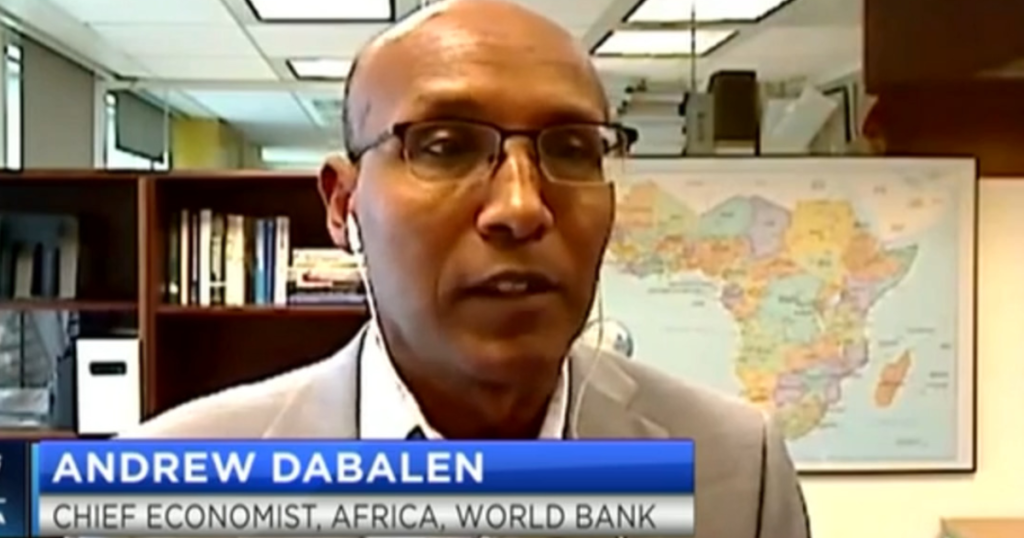Unlocking Africa's Potential: Strategies to Promote Connectivity and Financial Inclusion for Inclusive Growth

The African continent has enormous economic growth and development potential, but one of the major impediments is a lack of mobile internet access and financial inclusion. As the World Bank Chief Economist for Africa, Andrew Dabalen, pointed out in a recent report, closing the uptake gap for mobile internet services would not only boost economic recovery but also create more jobs for Africa’s growing population. In this article, we will explore the challenges that African countries face in achieving high connectivity and financial inclusion, as well as some solutions.
The World Bank noted in its report titled “Digital Africa: Technological Transformation for Jobs,” released on Monday, that Africa’s jobs challenge is to put in place business environments conducive to sustainable “good jobs” for its growing workforce.
As the world becomes even more digitized, Africa faces a challenge in closing the mobile internet access gap in order to capitalize on opportunities for inclusive growth. According to a World Bank report, despite having some level of 3G mobile internet availability and 63 percent having some level of 4G mobile internet services, only 22 percent of the population in Sub-Saharan Africa were using mobile internet services at the end of 2021. This is a significant impediment to Africa’s economic recovery, especially given the continent’s projected tripling of its workforce by 2100.

Challenges to achieving high connectivity in Inclusion in Africa
Despite significant advancements in recent years, Africa continues to lag behind other regions in terms of mobile internet penetration. According to the GSMA Mobile Economy report, only 28% of the population in Sub-Saharan Africa had access to mobile internet by the end of 2020, compared to a global average of 49%. There are several factors contributing to this low connectivity rate, ranging from high cost and a lack of proper infrastructure to education, where there is a significant digital divide in Africa, with many people lacking the digital skills required to effectively use mobile internet services. As a result, demand for these services is reduced.
Furthermore, financial inclusion is a critical challenge for African countries. In 2017, only 43% of adults in Sub-Saharan Africa had access to a bank account, according to the World Bank. Financial exclusion has a number of negative consequences, including restricted access to credit, savings, and insurance. Low levels of financial literacy, limited access to financial services, and limited use of digital financial services are some of the challenges to achieving financial inclusion in Africa.
Strategies to overcome the challenges
To address this challenge, African countries must advocate for the use of digital and complementary technologies. Such policies must address both the ability to pay for these technologies and the willingness to use them productively. To increase productive usage, governments should implement policies that encourage the development of more appealing digital solutions tailored to people’s skills and productive needs, while also raising awareness and education. Policies that encourage innovation and support digital start-up entrepreneurs are also necessary to ensure that more Africans use the internet for jobs and learning, resulting in higher living standards.
Financial inclusion is also an important aspect of promoting Africa’s connectivity. Mobile money and digital wallets, for example, have the potential to bring financial services to previously underserved populations, particularly in rural areas. According to the World Bank, expanding mobile money to currently underserved individuals in Sub-Saharan Africa could boost GDP by up to 2%. African governments must prioritize financial inclusion by enacting policies that promote the expansion of digital financial services and the use of modern payment systems. This includes encouraging financial sector competition, creating regulatory environments that foster innovation, and constructing digital infrastructure to support financial services.
Infrastructure investment: African governments and telecommunications companies must invest more in building and maintaining reliable networks in order to improve mobile internet connectivity. This will necessitate significant infrastructure investment, but it is necessary for achieving high levels of connectivity.
Governments can implement regulatory reforms that make it easier for telecom companies to invest in infrastructure and provide affordable mobile internet services. They can, for example, reduce taxes and fees on telecom companies and offer incentives for them to invest in rural areas.
While promoting high connectivity and financial inclusion in Africa is a significant challenge, the opportunities for inclusive growth are enormous. Demographic, technological, and market developments offer opportunities to design and implement productivity policies and investments that generate inclusive growth and true shared prosperity. African countries can overcome the challenge of low mobile internet access by prioritizing the adoption of digital technologies and financial inclusion policies, unlocking the potential for economic recovery and inclusive growth.
